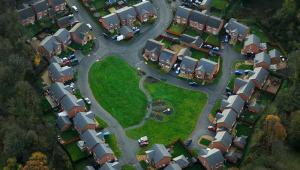28 March 2008
Despite the billions of pounds spent on low-income neighbourhoods, inequality continues to rise, according to a report by the New Economics Foundation.
Hitting the target, missing the point: how government regeneration targets fail deprived areas, published on March 26, says that the government's failure to measure regeneration policy properly has led to a poor return on investment for the UK's most disadvantaged communities.
NEF researcher Eilis Lawlor said: 'Those who lose out most are the people who live through initiative after initiative but see nothing change.'
Analysing one of the government's flagship programmes, the Local Enterprise Growth Initiative, the report concludes that investment has not been targeted at the places where it would have the most impact because it has not been supported by 'robust measurement'.
It calls for a more sophisticated approach to measuring change that provides a clearer understanding of the impact of regeneration programmes.
Lawlor said: 'Failure to effectively measure the impact of regeneration policy has led to the perpetuation of similar types of initiative that have left the lives of those in some of the most disadvantaged areas of the UK largely unchanged for over 30 years.
'Only by measuring what really matters to the people living in those communities can we break this cycle of degeneration.'
The report says targets can create perverse incentives and economic development policy should be underpinned by an awareness of its impact on inequality.
It calls on the government to take a long-term view and have better short-term measures of progress.
PFmar2008



















